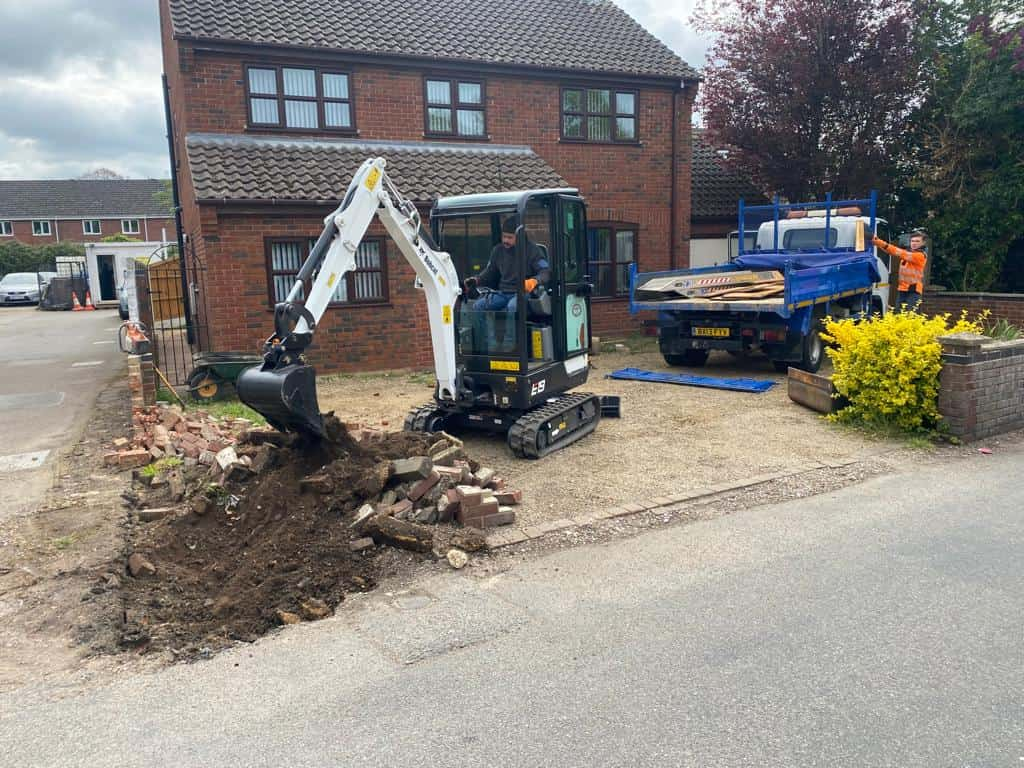Farms and Fields: How Tarmac’s Durability Tackles Tough Terrain
For rural properties such as farms and fields, driveways and pathways need to be able to handle the harsh realities of heavy machinery, frequent vehicle traffic, and challenging weather conditions. One material that stands out for its resilience and longevity in these environments is tarmac. At Swaffham Driveways, we specialise in creating robust, long-lasting driveways designed to withstand the toughest terrains in Swaffham, Norfolk, and beyond. In this post, we’ll explore why tarmac is the ideal choice for rural settings and how its durability helps tackle even the toughest terrain.
The Durability of Tarmac: Perfect for Rural Applications
- Heavy Load Resistance Farms and rural properties typically require a surface that can endure the weight of heavy machinery such as tractors, trailers, and delivery trucks. Tarmac is renowned for its load-bearing capacity, making it a reliable option for farm driveways and access routes. Unlike other materials that may crack or deform under heavy loads, tarmac retains its structural integrity, even with constant pressure from large vehicles.
- Smooth Surface for All Vehicles Tarmac creates a smooth, even surface that’s ideal for a wide variety of vehicles, from farming equipment to standard cars. Uneven or gravel paths can cause problems, especially for lighter vehicles, but tarmac provides a level and reliable driving surface. This smoothness also contributes to less wear and tear on vehicles, reducing maintenance costs for farm and rural machinery.
- Weather Resistance The British weather can be particularly challenging in rural areas, with rain, frost, and varying temperatures taking their toll on driveways and paths. Tarmac’s weather-resistant properties make it ideal for farms and fields, where exposure to the elements is a constant concern. It is impermeable to water, which reduces the risk of damage from freeze-thaw cycles in the winter. Its ability to withstand heavy rainfall means that potholes, cracks, and erosion are less likely to form, providing a long-lasting, durable surface.
- Quick Installation Tarmac is relatively quick and easy to install compared to other driveway materials. For rural properties where minimal disruption is important, tarmac offers a fast and efficient solution. Whether you’re looking to pave an access road, a parking area, or a driveway leading to barns and outbuildings, the speed of tarmac installation means less downtime and faster access to your property.
- Low Maintenance One of the standout benefits of tarmac is its low maintenance requirements. Once installed, it provides a long-lasting surface that requires minimal upkeep. While occasional resurfacing may be necessary after many years of use, tarmac is highly durable and can resist cracking, potholes, and damage for extended periods. For busy farms and rural properties, where time is always in short supply, the low-maintenance nature of tarmac is a significant advantage.
- Cost-Effective Solution Tarmac offers excellent value for money, particularly for large rural areas that require substantial paving. Its affordability, combined with its durability and low maintenance costs, makes it an ideal choice for farmers and rural landowners looking for a cost-effective solution that will last for many years.
The Versatility of Tarmac for Farms and Fields
Tarmac is not only durable but also highly versatile, making it suitable for a range of applications on farms and in rural settings. Here are some common uses for tarmac on agricultural properties:
- Farm Driveways: Tarmac provides a smooth, durable surface for farm driveways, capable of handling heavy farm machinery and frequent traffic.
- Access Roads: On larger properties, access roads need to be tough enough to handle regular use. Tarmac’s strength and resilience make it an ideal material for these roads.
- Parking Areas: Whether it’s for farm vehicles or visitor parking, tarmac creates a clean, even parking area that can handle the weight of multiple vehicles without degrading.
- Livestock Areas: In some cases, tarmac can be used around livestock areas or barns where a durable, non-slip surface is needed.
Sustainable Option for Rural Settings
For those concerned about the environmental impact of their choices, it’s worth noting that tarmac is a recyclable material. Old tarmac can be reprocessed and used in new projects, making it a more sustainable option compared to some other materials. Additionally, its long lifespan means less frequent replacement, reducing waste over time.
Conclusion
When it comes to rural properties like farms and fields, tarmac stands out as the most durable, cost-effective solution for driveways, access roads, and parking areas. Its resilience to heavy loads, weather resistance, and low maintenance requirements make it the ideal material for tackling tough terrain. At Swaffham Driveways, we offer expert installation of high-quality tarmac driveways designed to meet the unique needs of rural properties in Swaffham, Norfolk, and the surrounding areas.
Call us on: 01760 308 698
Click here to find out more about Swaffham Driveways
Click here to complete our contact form and see how we can help with your Driveways needs.

